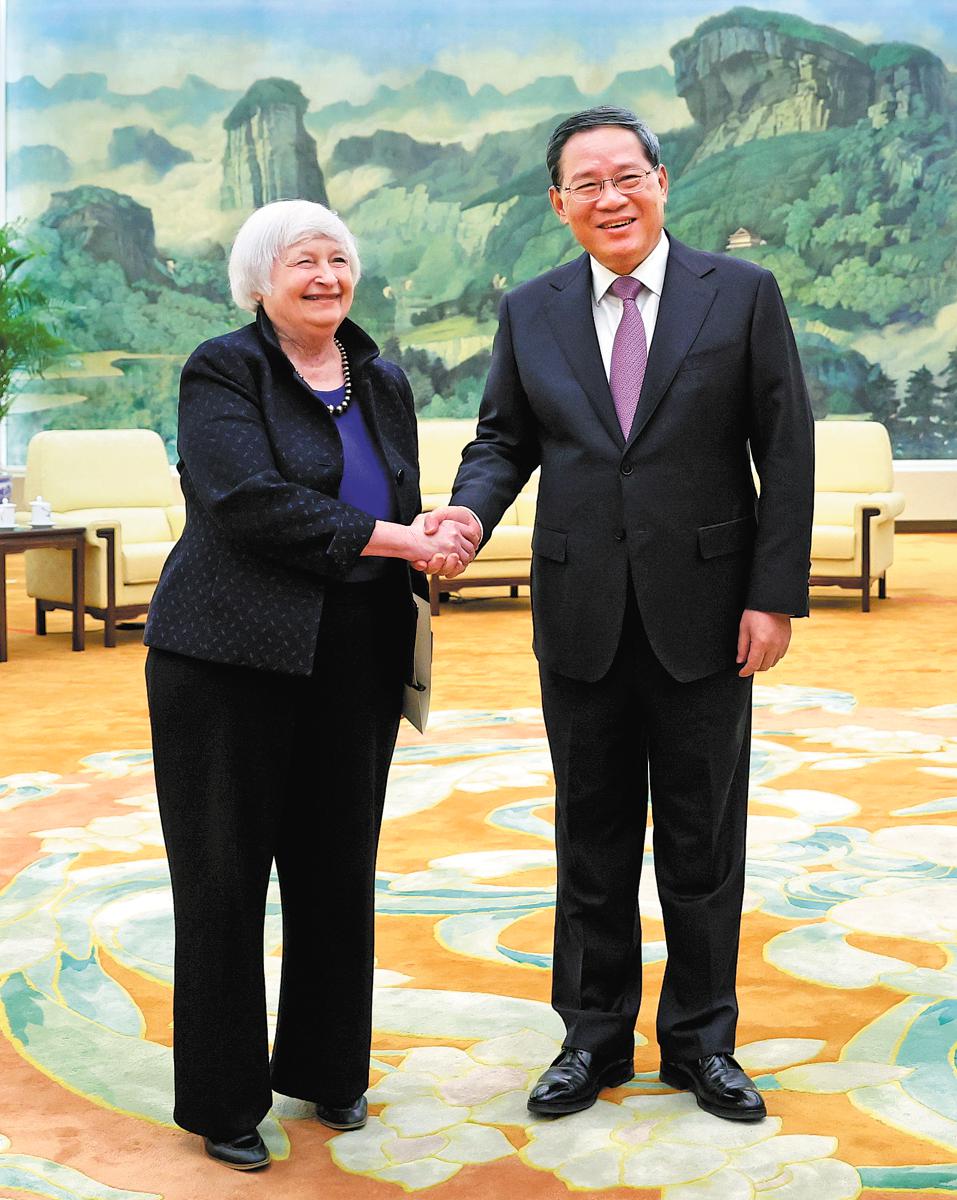Stable, efficient Sino-US trade cooperation urged


Premier Li Qiang underlined on Sunday, during a meeting with US Treasury Secretary Janet Yellen in Beijing, the need for China and the United States to work as partners instead of rivals, and he urged Washington to "objectively" view China's production capacity.
It is hoped that the US will abide by the basic norms of market economy, including fair competition and open cooperation, and refrain from turning economic and trade issues into political or security issues, Li said.
Regarding the so-called "overcapacity" concerns of Washington, the premier said the US should view the issue of production capacity objectively from a market-oriented and global perspective. The development of China's new energy sector will make significant contributions to the global green and low-carbon transition, he added.
Noting that China and the US, as the world's two largest economies, have deeply converging economic interests, Li said that strengthening bilateral economic and trade cooperation is of great significance for their respective development and also for global economic growth.
Both sides should enhance communication to find ways to manage and resolve differences, and to make China-US economic and trade cooperation stable, smooth and efficient, Li said.
The premier also said that China is willing to strengthen policy coordination with the US in addressing climate change and to jointly tackle global challenges.
Yellen arrived in China on Thursday, with her first stop being Guangzhou, Guangdong province, where she met with Vice-Premier He Lifeng. Both exchanged views on the macroeconomic situations of the two countries and the world, as well as China-US economic relations and global challenges.
Yellen's China visit follows a phone conversation between President Xi Jinping and US President Joe Biden on Tuesday, when both sides agreed to strengthen dialogue, manage differences, promote cooperation and work toward the stable development of bilateral ties.
During Sunday's meeting with the Chinese premier, Yellen said that with the joint efforts of both sides, US-China relations have become more stable.
The US commends the progress made in US-China economic dialogue and cooperation, and it does not seek decoupling from China, she said.
The US is willing to work with China to implement the common understanding reached between the leaders of the two countries during their meeting in San Francisco in November, and to engage in candid communication to avoid misunderstandings, Yellen added.
She also expressed the US' willingness to deepen exchanges and cooperation with China, properly manage their differences, jointly address pressing global challenges and promote stable development of bilateral ties.
Experts said that China and the US should strengthen economic and trade cooperation, thereby promoting upgrades and transformation of their respective economies as well as safeguarding the capability of the world economy to address challenges and pursue development.
Zhang Monan, deputy director of the Institute of American and European Studies at the China Center for International Economic Exchanges, said the US has pursued a policy of containment and suppression of China as a strategic competitor in recent years. Yet bilateral economic and trade ties are deeply integrated, and even if the US intends to reduce its dependence on China, the connections cannot be severed, she said.
"Most industries in the US are poised to enter a restocking cycle this year, and import demand is expected to expand in terms of consumer electronics, furniture, building materials, food, agricultural products, textiles, clothing and other goods," Zhang said.
"At the same time, China's strategy of expanding domestic demand and advancing high-level opening-up will further unleash the potential of its ultra-large market, which will help strengthen its economic and trade ties with the US," she added.
Zhang also said the top priority for the two countries to improve economic and trade ties should be to repeal the extra US tariffs imposed on Chinese goods.

































